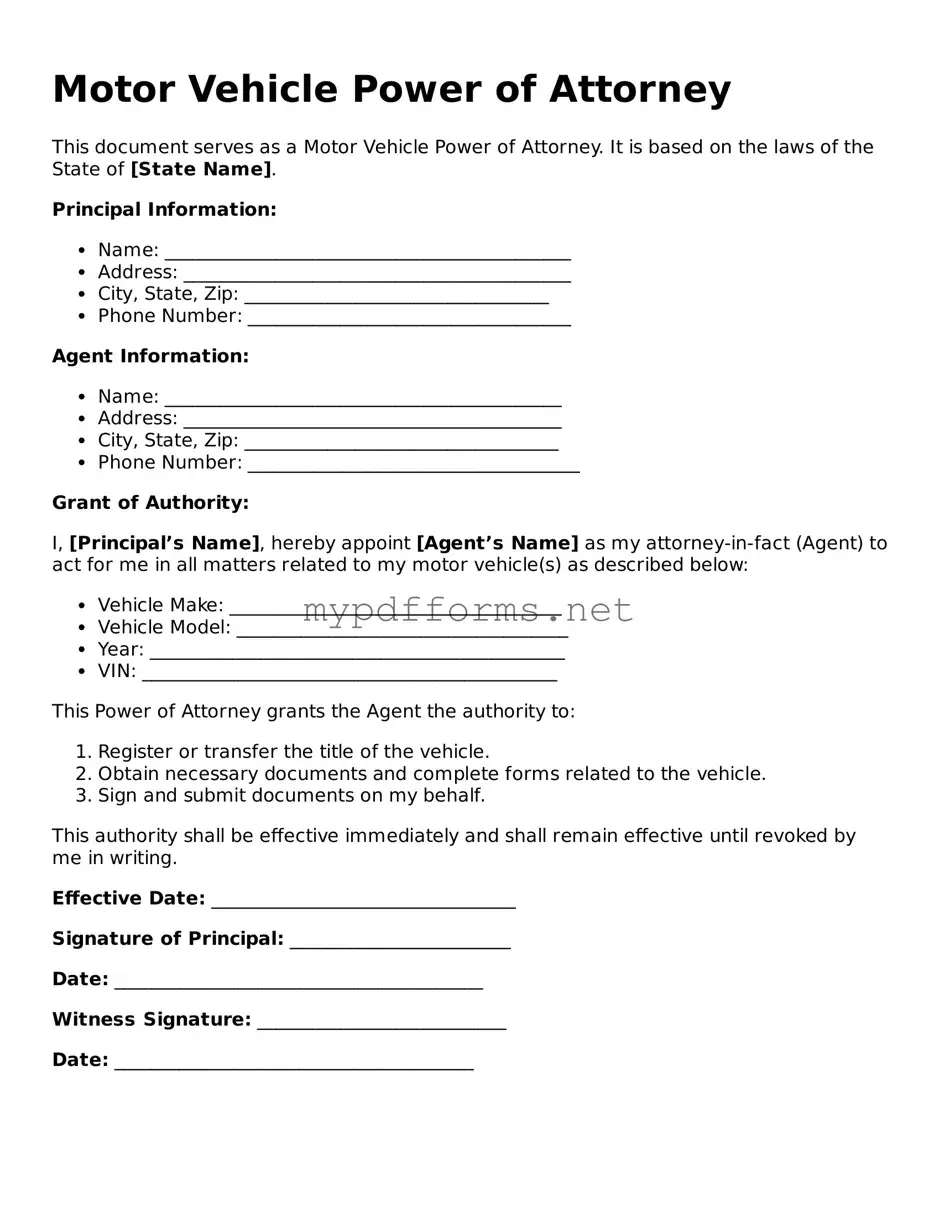The Motor Vehicle Power of Attorney (POA) form is similar to a General Power of Attorney. Both documents allow one person to act on behalf of another in various matters. In the case of a General POA, the agent can handle a wide range of decisions, from financial transactions to legal issues. This flexibility makes it a powerful tool for those who need someone to manage their affairs when they are unable to do so themselves.
When it comes to managing various legal documents, understanding each type is essential, particularly if you're involved in transactions involving vehicles. For those needing assistance with unclaimed properties or related forms, the Illinois Unclaimed Property Reporting form is a vital resource. To find out more, you can refer to Illinois Forms. This ensures you're equipped with the right tools for efficient handling of your affairs.
Another document that resembles the Motor Vehicle POA is the Limited Power of Attorney. This form grants specific powers to the agent, unlike the broader scope of a General POA. For example, a Limited POA may only allow the agent to sell a car or manage a specific bank account. This targeted authority can be useful when a person wants to give someone the ability to act in a defined area without relinquishing control over all their affairs.
The Durable Power of Attorney shares similarities with the Motor Vehicle POA in that it remains effective even if the principal becomes incapacitated. This is crucial for individuals who want to ensure their affairs are managed during a period of illness or disability. Both documents empower the agent to make decisions, providing peace of mind that responsibilities will be handled when the principal cannot act on their own.
A Medical Power of Attorney is another document that serves a specific purpose. While the Motor Vehicle POA deals with vehicle-related matters, the Medical POA allows an agent to make healthcare decisions for the principal. Both forms require the principal to trust the agent to act in their best interest, whether it’s managing medical care or handling vehicle transactions.
The Financial Power of Attorney is also comparable to the Motor Vehicle POA. It allows an agent to manage financial matters on behalf of the principal. This can include paying bills, managing investments, or handling real estate transactions. Like the Motor Vehicle POA, it requires clear communication of the powers granted and the trust placed in the agent.
The Real Estate Power of Attorney is similar in that it allows someone to act on behalf of another in real estate transactions. This document can authorize the agent to buy, sell, or manage property. While the Motor Vehicle POA focuses on vehicles, both documents share the common goal of allowing someone to handle specific transactions that the principal may not be able to manage personally.
Finally, the Revocation of Power of Attorney is a document that, while different in purpose, relates closely to the Motor Vehicle POA. This form is used to cancel a previously granted power of attorney. If a principal decides they no longer want someone to act on their behalf regarding their vehicle or any other matters, this document formally revokes that authority. Understanding how to revoke a POA is essential for maintaining control over personal affairs.

